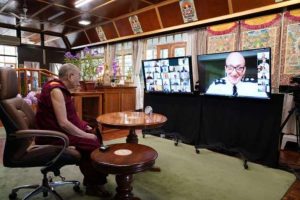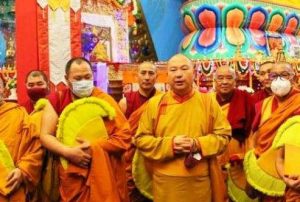
A new report by the Washington, DC-based Pew Research Center offers data on religious attitudes in six countries: Cambodia, Indonesia, Malaysia, Singapore, Sri Lanka, and Thailand. While the majority of people in all six countries were accepting of people of different religions, a variety of views were expressed about particular issues and religious expressions. The report, released on 12 September, surveyed more than 13,000 adults from June to September 2022.
The report, titled “Buddhism, Islam, and Religious Pluralism in South and Southeast Asia,” shows that Buddhism plays a major role in the three Buddhist-majority countries, just as Islam does in the two Muslim-majority countries. In Singapore, a more multi-religious nation, religion plays less of a role.
In terms of positive regard for having members of other religions in the country, Malaysia ranked first, with 62 per cent of respondents saying that diversity made their country a better place to live, and with only 4 per cent saying it made the country worse. Sri Lanka nearly tied, with 62 per cent agreeing that diversity helped, while 6 per cent said it made the country a worse place to live.

Cambodia and Thailand both had the fewest people who expressed a belief that diversity makes their country a better place to live, with 31 per cent and 19 per cent respectively.
Singapore stands out with the highest number of people saying that they view other religions as compatible with their society. Nearly nine out of ten said that Islam, Christianity, Hinduism, Chinese traditional religions, and local beliefs/Indigenous religions were all compatible. Other countries had generally positive feelings about other religions, with Cambodia as an outlier, where only 43 per cent of people viewed Islam as compatible with their society, 44 per cent viewed Christianity as compatible, and 29 per cent viewed Hinduism as compatible.

Among Buddhist countries, Cambodians also ranked as the least likely to accept conversion out of their faith, with 92 per cent saying it would be unacceptable. Here, Singaporeans again showed the most tolerant attitudes, with only 36 per cent of Buddhists saying conversion away from their faith would be unacceptable.

Looking at Buddhists in particular, the survey found that younger Buddhists in Cambodia, Singapore, Sri Lanka, and Thailand, were all more accepting of religious conversion from their religion than older Buddhists. Seventy-eight per cent of younger (ages 18–34) Singaporean Buddhists accept conversion from Buddhism, compared with 53 per cent of those 35 years or older. In Thailand, 46 per cent of younger Buddhists accept conversion away, compared with only 22 per cent of older Buddhists. In Sri Lanka and Cambodia, acceptance across ages was lower and differences between age groups were smaller.
Sri Lankan Buddhists stood out for their respect of key figures of major religions. In the survey, when asked who they often pray or offer respect to, 100 per cent of Sri Lankan Buddhists said the Buddha, 39 per cent said Allah, 57 per cent said Jesus Christ, and 84 per cent said Ganesh. Sri Lankan Muslims were similarly diverse in their prayers: 71 per cent said they pray to or offer respect to the Buddha, 100 per cent to Allah, 69 per cent to Jesus Christ, and 62 per cent to Ganesh. Christians, likewise offer prayers and respects to a variety of religious figures: 61 per cent to the Buddha, 41 per cent to Allah, 99 per cent to Jesus Christ, and 48 per cent to Ganesh.
The survey also showed at-times dramatic shifts in religiosity in Singapore over time. Buddhism, for instance, accounted for 27 per cent of the population in 1980, rising to more than 40 per cent by 2000, only to decline over the last two decades to 31 per cent. Chinese traditional beliefs/Taoism saw a dramatic decline, from 30 per cent of the population in 1980 to only 9 per cent in 2020. Meanwhile, those claiming no religion or Christianity saw steady increases over the last 40 years.
According to recent census data, 31 per cent of Singaporean adults identify as Buddhist, 20 per cent are religiously unaffiliated, 19 per cent are Christian, and 15 per cent are Muslim. The remaining 15 per cent includes Hindus, Sikhs, Taoists, and people who follow Chinese traditional religions, among others.
See more
Buddhism, Islam and Religious Pluralism in South and Southeast Asia
Do Christians Belong in Southeast Asia? Pew Polled Buddhists and Muslims
Asians accept cultural diversity of religions, says survey
Sri Lankans Are Positive About Religious Diversity, Says Pew Survey
Related news reports from BDG
Wichita, Kansas Sees Extraordinary Growth in Buddhist Population
Young Buddhist Association of Indonesia Celebrates Vesak in the Spirit of Social Harmony
US-Based Research Finds that Gen Z Are Changing What Faith Looks Like
Singapore Buddhist Lodge Celebrates 85th Anniversary
Interfaith Harmony: Singaporean Buddhists and Hindus Donate Rice to Muslims for Ramadan
Buddhist and Muslim Leaders Meet in Bangladesh to Reaffirm Humanitarian Commitments













